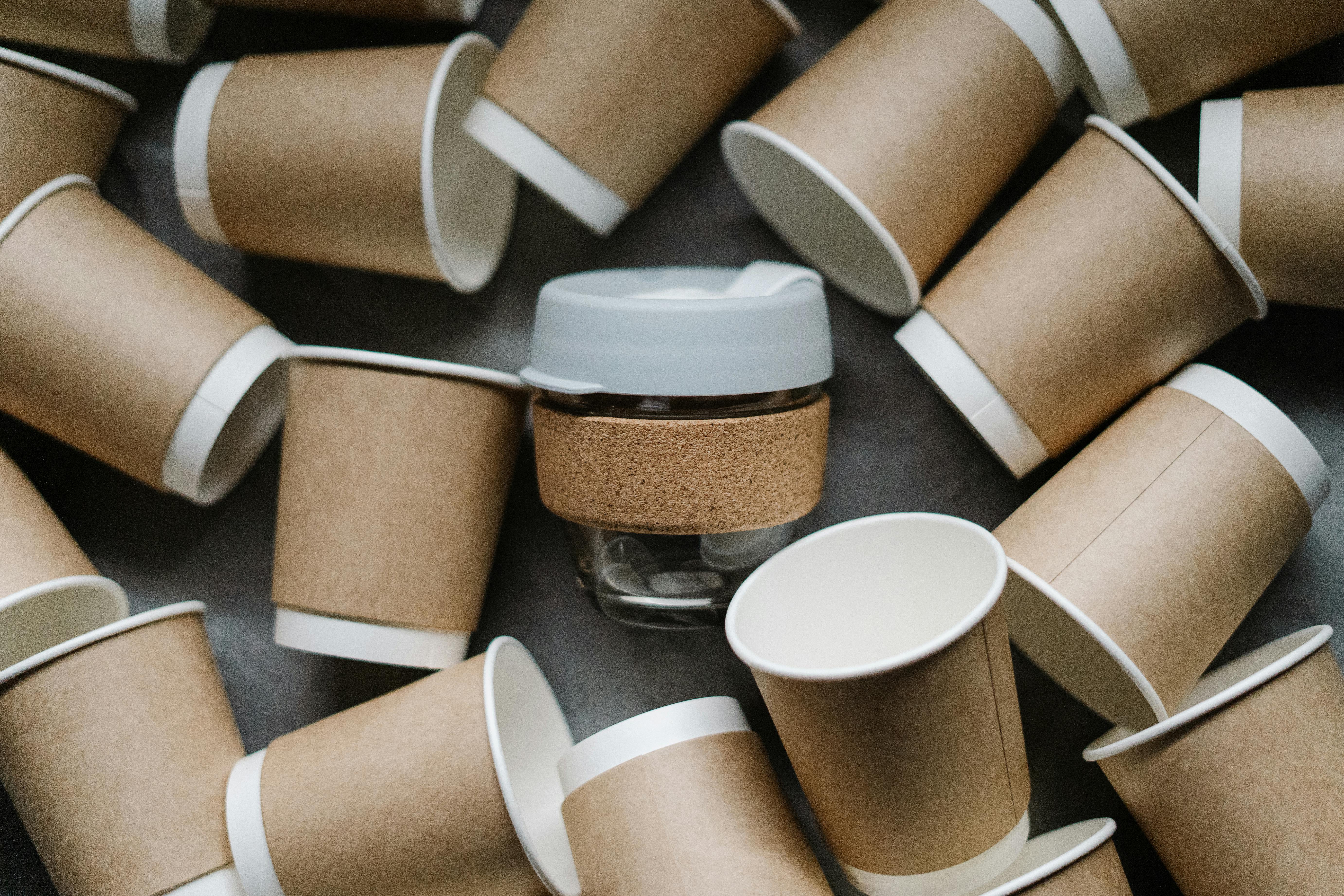Did you know that this Friday 4 October is No Disposable Cup day? This was started in 2019 to draw attention to the 7 million disposable cups that are used and discarded every single day just in the UK, which equates to around 2.5 billion a year.
Disposable coffee cups – why are they so bad?
Of these, only around 1% are recycled (approximately 1 in every 400). When you compare this figure with the fact that around 45% of UK household waste is recycled, it starts to become clear why we need to start reducing our use and look for more environmentally sound alternatives.
The production of disposable cups also uses large amounts of natural resources, including water, trees (for paper cups), and energy (for manufacturing). This contributes to deforestation, depletion of water sources, and increased greenhouse gas emissions.
Paper cups (even those labelled 100% recyclable) are hard to recycle because they have a thin plastic inner lining to stop liquids from leaking through the cup. This is difficult to separate from the paper and, as a result, the majority end up in landfills or as litter, where they take hundreds of years to decompose. Not only this, but the microplastics and toxic chemicals used in their production leach into the environment and impact particularly on aquatic life. If they go to landfill, they are incinerated, and these chemicals are then released into the atmosphere.
Disposable paper cups need to be recycled in a proper facility, of which there are only 3 in the UK. You can’t put them in your household recycling either as this will contaminate the rest of the plastic so then the whole batch has to be sent to landfill.
Alternative options
The only real sustainable option is reusable coffee cups which are usually made from materials like stainless steel or bamboo. They can be used multiple times, and many coffee shops now offer discounts to customers who bring their own cups. It has been estimated that if reusable cups replaced single-use cups, carbon emissions could fall by 69%.
Compostable cups are often not truly compostable because they still have a thin inner film and whilst this may be from plant-derived materials other toxic chemicals are often added during the manufacturing process. They can only be composted at an industrial composting facility and cannot be included in your household recycling. If all the 2.5 billion disposable cups were all lined up at once, they would stretch around the Earth 5½ times! So, if you are a regular takeaway coffee consumer, consider investing in a proper reusable coffee mug and do your bit to help the environment.

You must be logged in to post a comment.